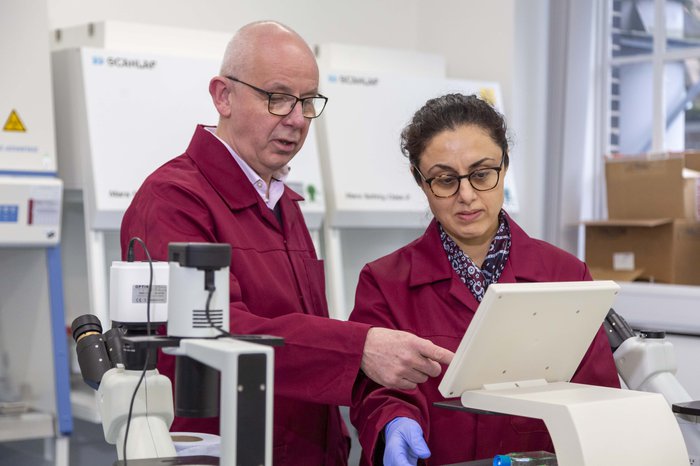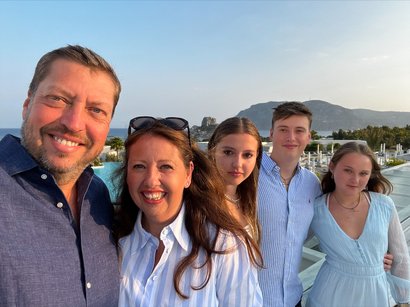Our research strategy: prevention
Because we can stop some people from getting blood cancer at all.
Through research, we will find ways to identify people at risk of developing blood cancer and target pre-malignant disease.
Head to page 16 of the full strategy to read more on prevention.

Professor Chris Bunce and Dr Farhat Khanim
The challenge
Prevention has been a major focus of research in solid tumours, but not for blood cancer. That’s because over 90% of blood cancer is not preventable or linked to lifestyle factors like diet, exercise, or smoking.
There are some early, non-cancerous blood conditions that can sometimes develop into blood cancers.
Only a small number of people will go on to develop a more serious cancer, but right now we have no way of knowing who those people will be.
The opportunity ahead
We’re learning more about pre-cancerous conditions, such as monoclonal gammopathy of undetermined significance (MGUS) which can sometimes develop into multiple myeloma.
We’re committed to supporting research to help identify people at high risk of developing these conditions and offer treatments to stop blood cancer from developing.
Project spotlight
Dr Aidan Haslam is working with Professor Chris Bunce to understand more about the root causes of myeloma. With their research they hope people at an increased risk of this disease can be screened and monitored, and new drug treatments can be developed.

Dr Aidan Haslam
We hope to identify which patients will go onto develop myeloma and how we might intervene. Ultimately, I hope we can diagnose patients with myeloma earlier and maybe even prevent it from developing in the first place
- Dr Aidan Haslam
Dr Aidan Haslam's project was funded by the Matthew Wilson Multiple Fund, which has funded £3 million towards improving diagnosis and treatment of myeloma.

Help find a cure for myeloma
After his diagnosis, Matthew Wilson set up the Matthew Wilson Multiple Myeloma Fund with a clear mission – to help find a cure for multiple myeloma. Help him reach his mission today.
More About This